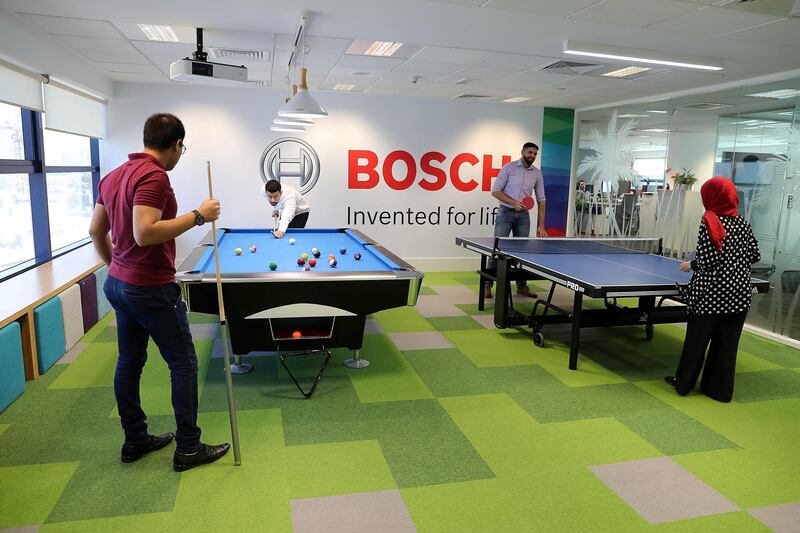We’ve all had that Thursday feeling; as the weekend looms and you plan how to relax before starting the working week afresh, the break can be re-energising and recuperative – but it’s usually over too soon. Now imagine if you got to experience that feeling a day earlier ahead of a three-day weekend.
That's exactly what some companies in the UAE are considering to give their employees an incentive to feel motivated enough to return to work recharged and ready to hit the ground running. Engineering firm Bosch is one of the companies which said it would consider introducing a shorter working week. It has already introduced a range of measures to improve wellbeing among its staff, including flexible hours, homeworking and extended maternity leave. "We need to consider it because the world is changing," says head of human resources Simone Beretta.
The last few years have seen vast strides in the advancement of artificial intelligence, which brings with it the promise of mundane and repetitive jobs being performed by robots in the future, leaving us all free to pursue individual interests. In a trial in New Zealand, employees working four days a week on full pay showed reduced stress levels, an increase in work-life balance and no drop in productivity. Research in Sweden has shown nurses who worked six-hour days were 20 per cent happier, took half as much sick leave and were more productive than those who worked typical hours. Some experts think the 40-hour working week is not conducive to optimal brainpower.
Moreover, teleworking has become increasingly popular in an age of start-ups and a number of freelancer hubs have sprung up around the UAE. Certainly, working remotely can benefit both bosses and employees; the teleworker is more likely to be committed to completing a task without distractions and employers can save overheads.
There are some who would argue trying to cram five days’ worth of work into four days would pile on more pressure and lead to more stress, not less. What is clear is that working practices are likely to evolve dramatically in the next few years.
No one knows for sure what the future of work might look like but if it leads to companies offering more incentives to recruit the best talent, that can only be a good thing – for everyone in the workplace, whatever it looks like.





